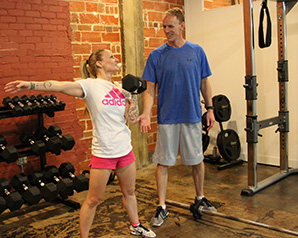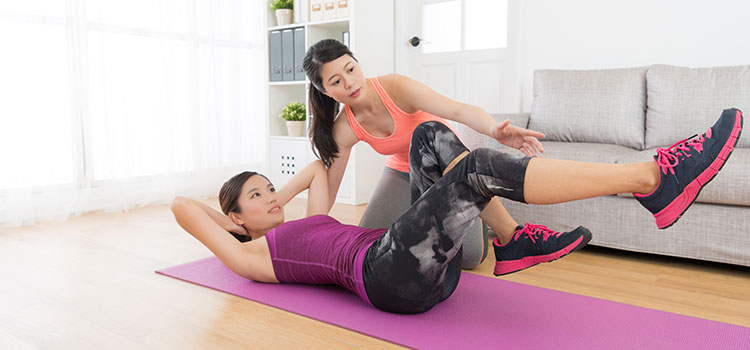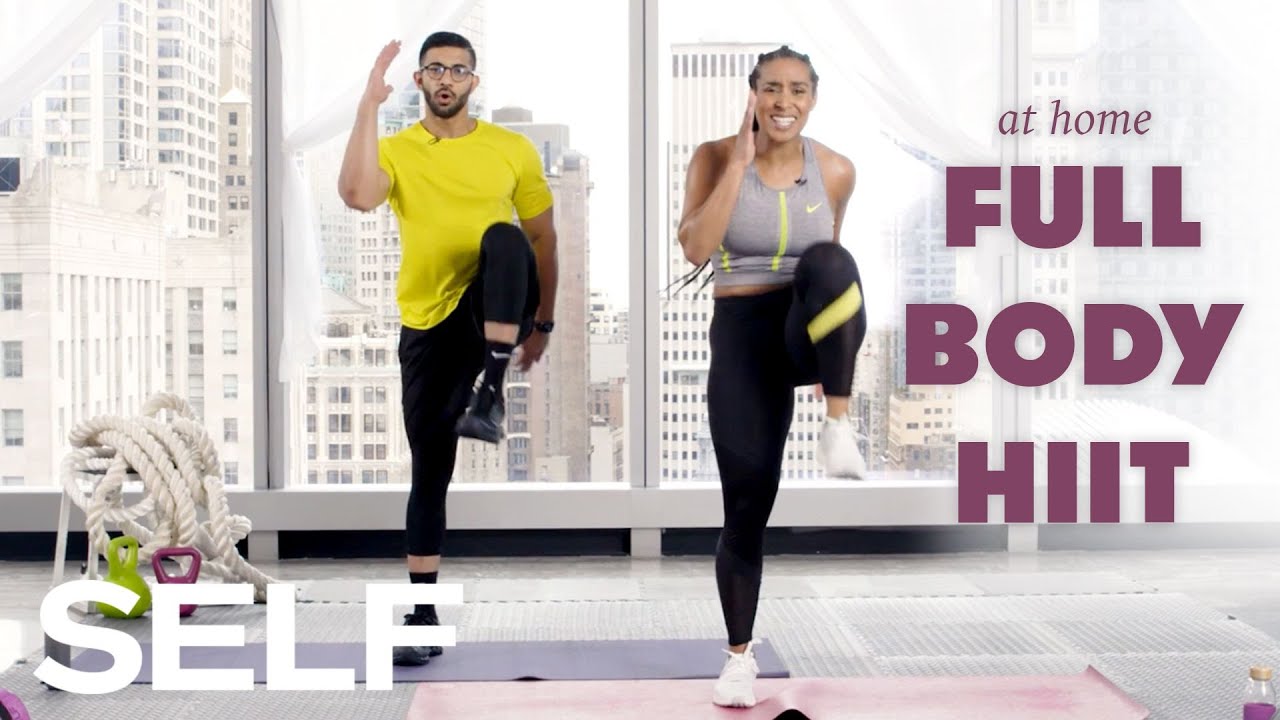
Discuss your goals with your doctor before you start working out. A free trial of a fitness app is also available. A personal trainer can help you identify meaningful reasons to exercise, such as keeping up the pace with your children or feeling strong in yourself. You should consult your doctor before beginning any exercise program.
Workout apps offer free trials
Apps that provide free trials for workout apps are great for anyone who doesn't want to commit to full-price. Users can evaluate the program's ease of use, features, and cost-effectiveness by downloading free trials. You can also test out the customer service. This is an important factor when deciding if a program is right.
Some workout apps offer extended trial periods. Peloton is one example. It allows users to download the entire software before signing up. Extended free trials can be a great way of avoiding the financial decision. However, you should cancel your subscription before the trial ends. You can even share different workouts with your friends, some apps allow that. This is a fantastic way to keep your partner accountable and get in shape together.

Setting goals
Setting goals is an important part of any new fitness program. A goal can motivate and inspire you to take action. You can also set goals for your workouts, which will help you plan. You can create goals to help you get started if your are unsure where to start.
It is possible to start by writing down reasons for getting in better shape. These reasons may be written in a journal or even taped. You'll be able to remember why you want it.
Motivation
There are proven ways to motivate yourself to get started with working out. One way to motivate yourself is to set goals. You should set realistic goals that are achievable and achievable. If the goal seems too difficult you will lose motivation. One example of a realistic goal is to run a 5K.
Read inspirational articles and watch motivational videos as another way to be motivated to start working out. Nike's slogan "Just Do IT" is a great motivational tool. You can also look up a trainer's credentials on the website of the certifying body. Whatever method you choose, make sure to make your fitness a priority.

Avoiding injury
Although exercise is great for your body and can help you stay fit, injuries can cause serious injury. It doesn't matter if you are an avid walker or a fitness enthusiast, these simple precautions can help to prevent injuries and get you on your way to success.
Stretching is essential before you start a gym session. You should warm your muscles, especially if it has been a while since you last exercised. This will increase circulation, blood flow and reduce injury risk. Do not do static stretches. Instead, try dynamic stretches like arm lifts or leg lifts.
FAQ
Is it safe to exercise when the temperature is below freezing?
When possible, exercise outdoors. While the air temperature is a major factor in determining whether or not it's safe to exercise outside, it's not the only one. Other factors include visibility, humidity, precipitation and wind speed. Layers of clothing will protect you from rain and wind chill if you exercise outdoors in inclement climates.
Are there any exercises I should not do?
Before you start any new exercise routine, it is important to consult your doctor. You might have injuries or conditions that make it impossible to do certain types of exercise. Some activities may require special equipment, or training. For example, swimming requires a swimsuit and pool access.
Do I need to eat before working out?
No. It's not necessary to eat anything before you work out. It is possible to snack on yogurt or fruit if you are hungry after your workout.
How Can I Get Started With Fitness?
Start small. Begin by taking 10 minutes each morning to walk around the block. This will give you basic movement patterns and give your muscles time to adapt to the new routine. Once you are comfortable with this form of exercise and have gained some experience, you can start adding steps to your daily workout routine.
How many hours of rest should I get each evening?
The recommended amount of sleep varies depending on age, gender, and individual needs. Adults need between 7 to 9 hours sleep each night. Teenagers and children typically need about 10 hours of sleep per night, but this number decreases as they grow older.
Why is physical fitness important for your health?
Our health is dependent on our physical fitness. For our health to be healthy, we need to exercise often. Exercise is also good for our sleep, stress reduction, self-esteem and energy throughout the day.
Statistics
- In 2018, the World Health Assembly agreed on a global target to reduce physical inactivity by 15% by 2030 and align with the Sustainable Development Goals. (who.int)
- Globally, 28% of adults aged 18 and over were not active enough in 2016 (men 23% and women 32%). (who.int)
- An estimated 110,000 deaths per year could be prevented (cdc.gov)
- In high-income countries, 26% of men and 35% of women were insufficiently physically active, as compared to 12% of men and 24% of women in low-income countries. (who.int)
External Links
How To
How to Burn Belly Fats Quicker
When trying to lose weight, belly fat is often viewed as a problem. However, Belly Fat can be beneficial if you really think about it. Your organs are protected from being damaged by excess belly fat. So let's see how to burn belly fat fast.
The main factors that lead to body fat storage are stress and lack exercise. The cortisol hormone stimulates stress which makes us hungry. Cortisol is responsible for an increase in insulin levels. The excess calories are stored as fat by insulin. A lack of sleep leads to adrenaline being released into the system which causes an increased appetite. These extra calories can easily be lost through exercise.
There are many different ways to reduce bellyfat. All of these methods can be used, depending on your budget. These are some ways to quickly lose belly fat.
-
You can eat less. Instead of eating three large meals a day, eat smaller meals. This will help you consume less calories.
-
Make sure you drink plenty of water. Water flushes out toxins and keeps you hydrated. Drinking water prior to every meal will ensure that you are satisfied for longer periods of time and won't eat too much.
-
Avoid unhealthy snacks. If you're looking for quick fixes, snack foods like chips, cookies, candies, etc. These tempting snacks might look appealing. But avoid these fattening treats as they contain lots of empty calories and too much sugar. Choose healthy options like whole grains, fruits, vegetables, nuts, seeds and nuts.
-
Three times per week, strength training is recommended. Strength training helps build muscle mass, which means that you can burn more calories even when you are resting. It also strengthens bones, muscles, ligaments, tendons, the heart, lungs, and joints.
-
Stretching and walking are good habits. Stretching helps to improve flexibility and mobility, which reduces back pain. Walking can help you burn calories.
-
Reduce alcohol intake. Alcohol adds empty calories to your diet and has no nutritional value whatsoever.
-
Lose weight gradually. First, determine your current weight. Calculate your ideal weight by adding approximately 5% to 10% of the total weight. Once you have established your ideal weight, reduce your daily calorie intake by 500 to 1000 calories each day until you achieve your goal.
-
Avoid processed foods. These foods are high on sugar, salt, and additives. These processed foods are often convenient, but they lack enough nutrients for good health.
-
Don't skip breakfast! Consuming breakfast increases concentration, memory and energy levels. Breakfast should include protein (like eggs), fiber (like oats), and complex carbohydrates (like oatmeal).
-
Have regular bowel movements. Bloating and gas can be caused by irregular bowel movements and constipation. Drink plenty of water to prevent gas and fiber ingestion.